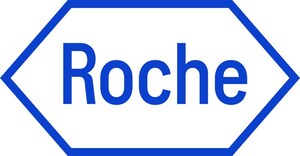Roche launches the cobas® Cdiff Test for detection of Clostridium difficile in markets accepting the CE Mark
-- New test expands menu for hospital-acquired infections testing on the cobas® 4800 System
PLEASANTON, California, March 19, 2014 /PRNewswire/ -- Roche (SIX: RO, ROG; OTCQX: RHHBY) announced today the CE-IVD launch of the cobas® Cdiff Test for the detection of Clostridium difficile (C. difficile ) in stool specimens. The cobas® Cdiff Test directly targets the toxin B gene found in toxigenic C. difficile strains in specimens from symptomatic patients and provides accurate information to assist clinicians in making timely treatment decisions and prevention of further infection in healthcare settings.
The cobas® Cdiff Test combines high assay sensitivity with rapid turnaround time and a minimum number of pre-analytic steps, to facilitate earlier intervention of patients suffering from C. difficile-associated disease. Earlier intervention can also lead to more effective implementation of infection control interventions, which can prevent further transmission to additional patients.
"PCR methods for the detection of toxigenic strains of C. difficile have demonstrated sensitive performance," said Dr. Frederic Barbut, Head of the National Reference Laboratory for Clostridium difficile, Hospital Saint-Antoine, France. "Broad strain coverage and excellent analytical performance can have a positive impact on identifying C. difficile-associated diarrhea, leading to improved patient management."
"With the addition of the cobas® Cdiff Test to our cobas® 4800 menu, Roche offers clinicians an additional tool to aid in the management of hospital-acquired infections," said Paul Brown, head of Roche Molecular Diagnostics. "When compared to other molecular methods, the cobas® Cdiff Test requires less sample handling and provides laboratories with a simplified workflow. It also delivers a lower inhibition rate, which means fewer repeat samples and chances for error, enabling better patient care."
The test is performed on the cobas® 4800 System, currently the only CE-IVD marked system that offers the flexibility to evaluate clinical specimens for the causative agents of sexually transmitted infections (cobas® HSV 1 and 2 Test, cobas® CT/NG Test) and hospital-acquired infections (cobas® Cdiff Test, cobas® MRSA/SA Test), in the same run, on a single platform.
About C. difficile
C. difficile is an anaerobic, toxin producing microorganism known to cause severe diarrhea, pseudomembranous colitis or toxic megacolon, often in patients where normal bacterial flora of the gut has been decimated following antibiotic therapy. Traditional methods for identification include toxigenic culture, which is labor intensive and slow, and enzyme immunoassays (EIA), which have limited sensitivity[1]. Algorithms have been developed using combinations of culture and EIA testing for C. difficile toxins and/or a C. difficile-specific enzyme, glutamate dehydrogenase antigen (GDH), to improve the sensitivity of individual assays alone. Nucleic acid amplification tests provide sensitive and timely identification of patients with C. difficile infection, and exhibit better performance than EIAs[2].
About the cobas® 4800 System
The cobas® 4800 System offers true walk-away automation of nucleic acid purification, PCR (polymerase chain reaction) set-up and real-time PCR amplification and detection to help laboratories achieve maximum efficiency. The system also runs the cobas® MRSA/SA Test, cobas® HSV 1 and 2 Test, cobas® CT/NG Test (chlamydia/gonorrhea), cobas® HPV Test, cobas® BRAF V600 Mutation Test, cobas® EGFR Mutation Test, and the cobas® KRAS Mutation Test.
About Roche
Headquartered in Basel, Switzerland, Roche is a leader in research-focused healthcare with combined strengths in pharmaceuticals and diagnostics. Roche is the world's largest biotech company, with truly differentiated medicines in oncology, immunology, infectious diseases, ophthalmology and neuroscience. Roche is also the world leader in in vitro diagnostics and tissue-based cancer diagnostics, and a frontrunner in diabetes management. Roche's personalised healthcare strategy aims at providing medicines and diagnostics that enable tangible improvements in the health, quality of life and survival of patients. Founded in 1896, Roche has been making important contributions to global health for more than a century. Twenty-four medicines developed by Roche are included in the World Health Organisation Model Lists of Essential Medicines, among them life-saving antibiotics, antimalarials and chemotherapy.
In 2013 the Roche Group employed over 85,000 people worldwide, invested 8.7 billion Swiss francs in R&D and posted sales of 46.8 billion Swiss francs. Genentech, in the United States, is a wholly owned member of the Roche Group. Roche is the majority shareholder in Chugai Pharmaceutical, Japan. For more information, please visit www.roche.com.
| All trademarks used or mentioned in this release are protected by law. |
|
| References: |
|
| [1]. |
Cohen SH, Gerding DN, Johnson S, et al. Clinical practice guidelines for Clostridium difficile infection in adults: 2010 update by the Society for Healthcare Epidemiology of America (SHEA) and the Infectious Diseases Society of America (IDSA). Infect Control Hosp Epidemiol 2010; 31:431–55. |
| [2]. |
Carroll KC. Tests for the diagnosis of Clostridium difficile infection: the next generation Anaerobe. 2011 Aug;17(4):170-4. |
| For media inquiries please contact: |
| Bob Purcell, Roche Molecular Diagnostics |
| 888-545-2443 |
| Claudia Panozzo, Austria |
| +43 1 277 87 360 |
| Bianca Hermle, Germany |
| +49 621 759 5156 |
| Silvia Zucca, Italy |
| +39 039 2817 612 |
| Hazel Clarke, UK |
| +44 1444 256922 |
| Francisco Aguilar-Alvarez, Spain |
| +34 93583 4011 |
| Eudes de Villiers, France |
| +33 4 76 76 31 26 |
| Banu Kutlu, Turkey |
| 00902123060606 |
| Harald Borrmann, Switzerland |
| +41 41 799 6253 |





Share this article